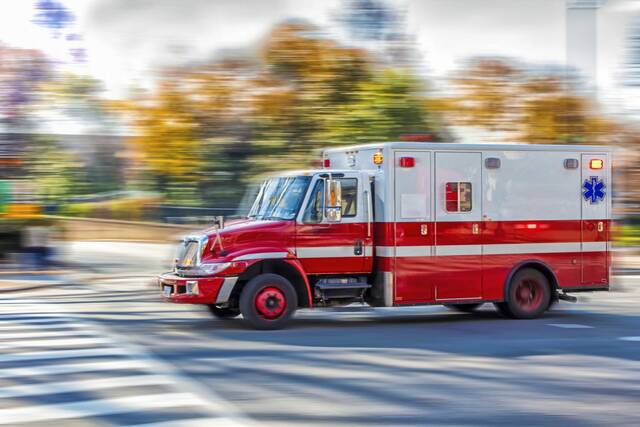Editorial: The importance of calling for help — and listening
When it comes to an emergency, it might seem that the most important thing is speed or equipment or expertise.
It isn’t.
When there is danger or when there is risk of death, one thing is more important than anything else: communication.
At the most basic, when you are hurt or fall, you call out for help. Maybe that’s waving down drivers on the side of the road when you are in a crash. Maybe that’s sending up a flare. More often than not, it’s going to be picking up the phone and dialing 911.
People depend on the simplicity of that exchange. Call for help and it arrives, whether in the form of police coming to stop a domestic assault or fire trucks showing up when your house is full of smoke or an ambulance when someone is broken or sick.
The importance of that is illustrated by a recent story out of Greene County.
Leon “Lee” Price, 50, of Waynesburg was charged with involuntary manslaughter for failing to send an ambulance to the rural home of Diania Kronk, 54, when her daughter Kelly Titchenell called in July 2020.
Kronk’s son found her dead the next day. Titchenell sued Price and Greene County in federal court last month, along with two 911 supervisors.
These cases are barely at their beginning and will play out over time. We are not taking positions on either the criminal or civil case.
However, the situation, regardless of blame, illustrates the importance of communication in these critical moments.
A call for help is not just a sacred trust. It is a balancing act — an attempt to ascertain what aid is needed, how best to provide it and how to manage resources that may be short staffed and pulled in different directions.
To do that adequately requires a give-and-take of information. But there is another kind of communication that it demands.
There must be an appreciation for the irreplaceable nature of first responder service. When fire companies and EMS say they are drowning and need help in the form of financial support and additional employees and volunteers, that is a call that must be answered, as well.
For years, first responders have been desperately shouting for help, and no one is showing up with lights and sirens. The number of firefighters in a state where most of those walking into the flames are volunteers has fallen for years. EMTs and paramedic numbers are hamstrung by insurance reimbursements and budget concerns. Even police are seeing their ranks dwindle, especially on the local level.
We depend on someone showing up when we call 911. But what do we do when no one gets the message because there isn’t enough help to go around?
Remove the ads from your TribLIVE reading experience but still support the journalists who create the content with TribLIVE Ad-Free.

